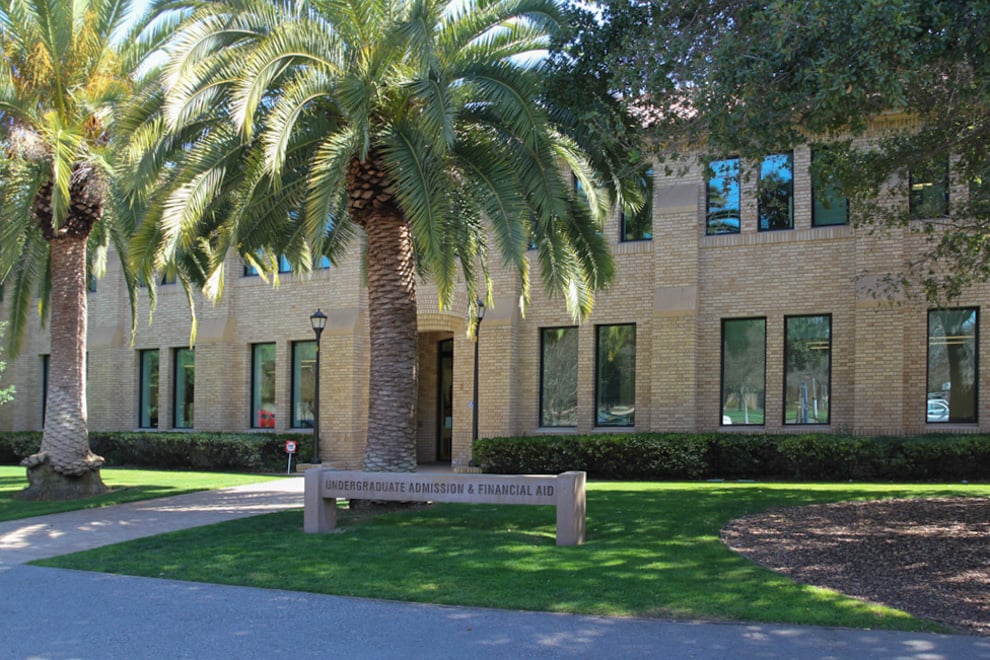Stanford University made changes to its supplemental application questions for the first time in several years.
Applicants for the class of 2022 were no longer asked, “What were your favorite events (e.g., performances, exhibits, competitions, conferences, etc.) in recent years?” The question, “What newspapers, magazines, and/or websites do you enjoy?” was also removed from this year’s application.
Instead, prospective students are now asked to name “one thing you are looking forward to experiencing at Stanford” and explain what they would do if given an extra hour in the day. The responses to all aforementioned questions, both past and present, are limited to 50 words.
Some questions on this year’s application were also rephrased. Applicants were no longer prompted to name their “favorite books, authors, films, and/or artists” but were instead asked, “When the choice is yours, what do you read, listen to, or watch?”
Moreover, Stanford’s well-known “intellectual vitality” essay, which asks students to “reflect on an idea or experience that makes you genuinely excited about learning,” no longer explicitly mentions the phrase “intellectual vitality.” In its place is a sentence declaring, “The Stanford community is deeply curious and driven to learn in and out of the classroom.”
The wording of the famous question, “What matters to you and why,” has also changed. The third question on Stanford’s supplement now asks applicants to “Tell us about something that is meaningful to you, and why?”
The rest of the application remains largely unchanged. Students are still asked to name the most significant challenge that society faces today, describe themselves in five words and write a letter to their future roommate.
In an email to The Daily, Associate Dean and Director of Admission Mike Devlin wrote, “The Office of Admission routinely evaluates the review process to ensure it is fair to all applicants. In the summer of 2016, we began a conversation with our staff about our application questions.”
According to Devlin, the admissions committee was particularly concerned with the accessibility of each question.
“We wanted the application questions to be more straightforward so that all applicants were able to understand the intent of each question and provide answers that allowed them to put themselves in the best light,” he said. “We also wanted to ensure that our staff actually found each current question useful when it came to evaluating an application.”
The admissions office expects these changes will enhance accessibility for students regardless of their background or resources and provide admissions staff with “an even more in-depth view of each student that will allow them to make the most informed decisions,” according to Devlin.
Julian Rubinfien, a high school senior from New York City who was offered a spot in Stanford’s class of 2022, described the University’s application process as more work-intensive than that of other schools because he prefers other institutions’ application format of longer supplemental essays in fewer quantity. He added that he “could talk about lots of things that were not very serious that I couldn’t have found a place for in other [schools’] essays.”
Matt Mettille, director of college counseling at the Menlo School in Atherton, echoed Rubinfien’s sentiments. According to Mettille, Stanford’s application, which consists of shorter questions in greater quantity, allows the University to “see a more authentic student.”
“The 600-word supplemental essay feels super polished where a 50-word essay feels more authentically like a 17-year-old,” he said.
Mettille also expressed his support for the recent changes to Stanford’s application questions, stating that he believes the prompt that asks applicants what they would do with an extra hour in the day “allows students to really think that Stanford values their free time … and to see what sparks their interests.”
He added that he believes the change in the wording of the question concerning “intellectual vitality” will also benefit applicants.
“Students used to feel [the question] was confined to just the classroom,” Mettille said. “I think that was a really positive change because it got students thinking much more broadly.”
Contact Michael Espinosa at mesp2021 ‘at’ stanford.edu.
